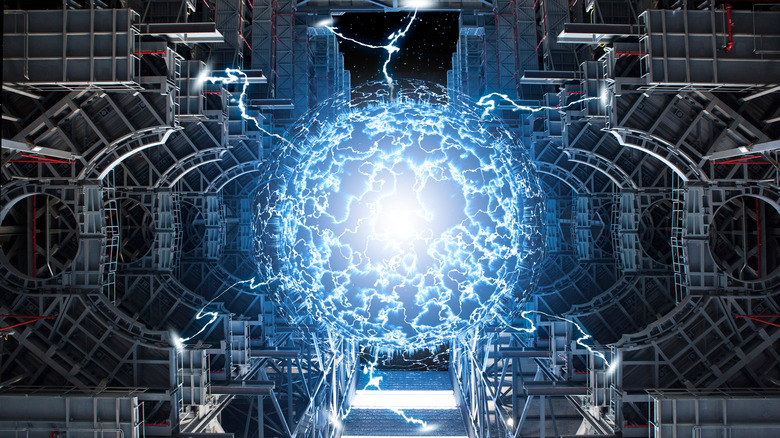Star Trek's Money-Free Society Explained
Wherever in the world civilization has appeared, humans have had to establish the management of their resources. Food distribution in particular can make or break a civilization, and the capacity for transportation is not always uniform. The Inca Empire, for instance, built a massive road network along western South America. Like all pre-Colombian societies in the Americas, though, there were no large draft animals as in Europe, Asia, or Africa that could be used for transportation or food production. This necessitated the placement of supply stations every few miles to keep travelers fed and hydrated (via World History Encyclopedia).
Even in recent history economic models have typically been centered on the finite nature of resources and money, with mistakes having the potential to snowball into recessions and depressions. Yet in the future, a new reality could be achieved where such issues are no longer concerns, where money is no longer needed, and humanity is free to put its collective creativity to other uses. This is the sort of world (or universe) that was envisioned by "Star Trek" creator Gene Roddenberry, and his idea may not be so far-fetched.
Star Trek economics may soon be a reality
The Federation of "Star Trek" is (arguably) a post-scarcity society, in which technology such as the replicator ensures there are no shortages of food and non-food items, rendering money redundant (via Wired). In an interview on his book "Trekonomics" with Marketplace, Manu Saadia posits that in this new economic environment the pursuit of prestige and morality are what drive success and scientific advancement instead of monetary gain. Beyond speculation on Saadia's part that there might be an accounting system of some kind to regulate manufactured goods, there is not much in the way of conventional financial bureaucracy.
What might not have been envisioned by Roddenberry is the idea that such a world could be realized in the 21st century, rather than the 22nd and beyond, in which his show was set. Nuclear fusion is a currently unproven technology that theoretically could provide clean, perpetual energy with none of the hazards of conventional nuclear and non-nuclear power. According to Time, recent advances in this field have made the likelihood of a true fusion reactor being built even greater, and with it the possibility that a "Star Trek"-like economy might be waiting in the near future.

